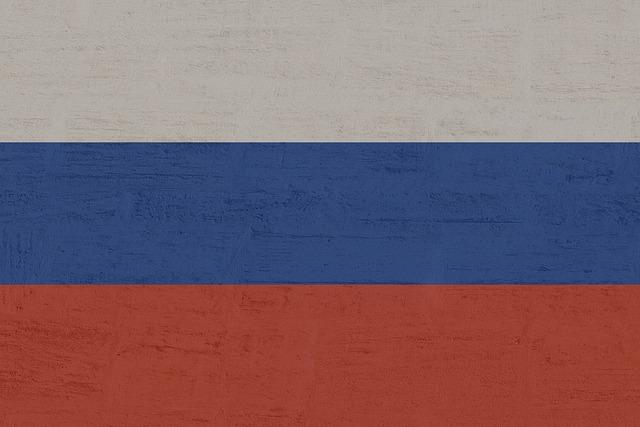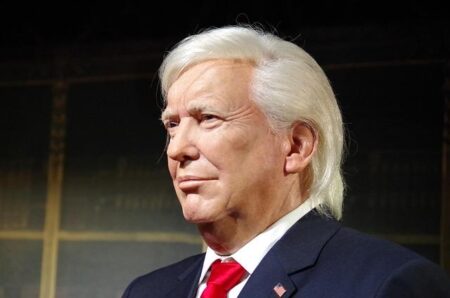Moscow has signaled its readiness to provide military assistance to Venezuela, according to recent statements that highlight the deepening ties between the two nations. As geopolitical tensions escalate in the Western Hemisphere, Russia’s offer marks a significant development in its strategic engagement with the Venezuelan government. This move comes amid ongoing political and economic challenges in Venezuela, raising concerns about potential shifts in regional security dynamics.
Russia Signals Strategic Military Support to Venezuela Amid Rising Geopolitical Tensions
Russia’s recent overture towards Venezuela marks a significant development in an increasingly charged geopolitical landscape. Moscow has hinted at expanding its military assistance to Caracas, signaling a willingness to deepen defense ties amid mounting international pressures. This move comes as Venezuela faces escalating economic sanctions and political isolation from Western powers. Experts suggest that Russia’s strategic backing could involve the provision of sophisticated military hardware, training, and intelligence cooperation, aiming to strengthen Venezuela’s defense capabilities while reinforcing Moscow’s influence in Latin America.
Key factors driving this military partnership include:
- Counterbalancing U.S. Influence: Enhancing Venezuela’s military could serve as a deterrent to U.S. intervention in the region.
- Securing Energy Interests: Protecting critical oil infrastructure that is vital to both nations’ economies.
- Geopolitical Signaling: Demonstrating Russia’s commitment to allies outside Europe amid global tensions.
| Support Aspect | Details |
|---|---|
| Military Hardware | Surface-to-air missiles, armored vehicles |
| Training Programs | Joint exercises, tactical training missions |
| Intelligence Sharing | Surveillance data, cybersecurity assistance |
| Political Support | UN voting alignment, diplomatic backing |
Analyzing the Implications of Russia’s Involvement for Regional Stability and US Relations
Russia’s decision to extend military support to Venezuela is poised to significantly alter the dynamics of regional stability in Latin America. Historically, Moscow’s involvement in the Western Hemisphere has been limited but strategically symbolic, aiming to challenge U.S. influence in the region. This latest move exacerbates existing tensions, particularly in nations already grappling with political and economic crises. Neighboring countries may respond with heightened caution, potentially accelerating arms builds or reinforcing security alliances to counter perceived Russian expansionism.
From a geopolitical perspective, this development complicates U.S.-Russia relations by injecting a fresh point of contention into their already strained dialogue. Washington’s approach to Latin America has traditionally emphasized containment of adversarial powers, making Russia’s proactive military engagement a direct challenge. The implications include:
- Increased diplomatic friction over sovereignty and military presence.
- Potential sanctions or policy shifts aimed at curbing Russian influence.
- Escalation of proxy engagements through geopolitical chess plays in the Americas.
| Aspect | Implications |
|---|---|
| Regional Security | Heightened military alertness and regional arms race |
| US Foreign Policy | Strategic recalibration and stronger presence in Latin America |
| Diplomatic Relations | Increased tensions with potential for multilateral dialogues or sanctions |
Recommendations for International Diplomatic Engagement and Conflict De-escalation Strategies
In light of Russia’s declared readiness to support Venezuela militarily, it is crucial for international stakeholders to prioritize diplomatic channels to prevent further destabilization in Latin America. Engaging multilateral organizations such as the United Nations and the Organization of American States in proactive dialogue can help mediate tensions and provide neutral ground for negotiation. Building trust through transparent communication and confidence-building measures between all parties involved remains essential to avert escalation and foster long-term stability.
Key strategies that could be implemented include:
- Facilitated dialogue sessions between Venezuelan government officials and opposition groups under international supervision
- Targeted sanctions relief contingent upon verifiable steps towards de-escalation
- Joint monitoring mechanisms to track compliance with ceasefire or disarmament agreements
- Humanitarian corridors to ensure aid access irrespective of political dynamics
| Diplomatic Measure | Expected Outcome | Responsible Actors | ||||||||
|---|---|---|---|---|---|---|---|---|---|---|
| Mediation by OAS | Neutral ground for talks | OAS, Venezuela, Russia | ||||||||
| Conditional Sanctions Relief | Incentivize de-escalation | U.S., EU, Latin American Partners | ||||||||
| Joint Monitoring Committee |
In light of Russia’s declared readiness to support Venezuela militarily, it is crucial for international stakeholders to prioritize diplomatic channels to prevent further destabilization in Latin America. Engaging multilateral organizations such as the United Nations and the Organization of American States in proactive dialogue can help mediate tensions and provide neutral ground for negotiation. Building trust through transparent communication and confidence-building measures between all parties involved remains essential to avert escalation and foster long-term stability. Key strategies that could be implemented include:
|




